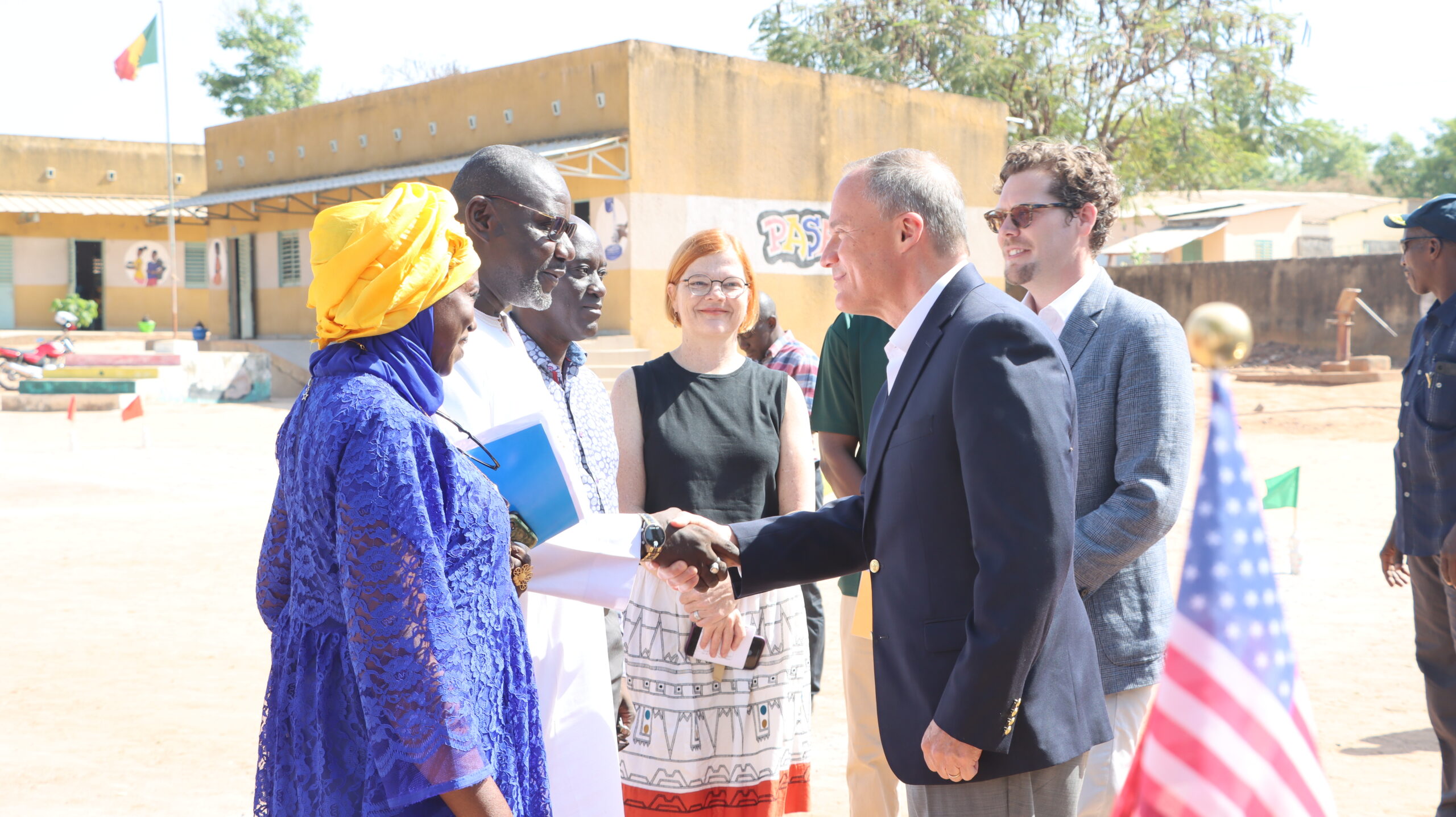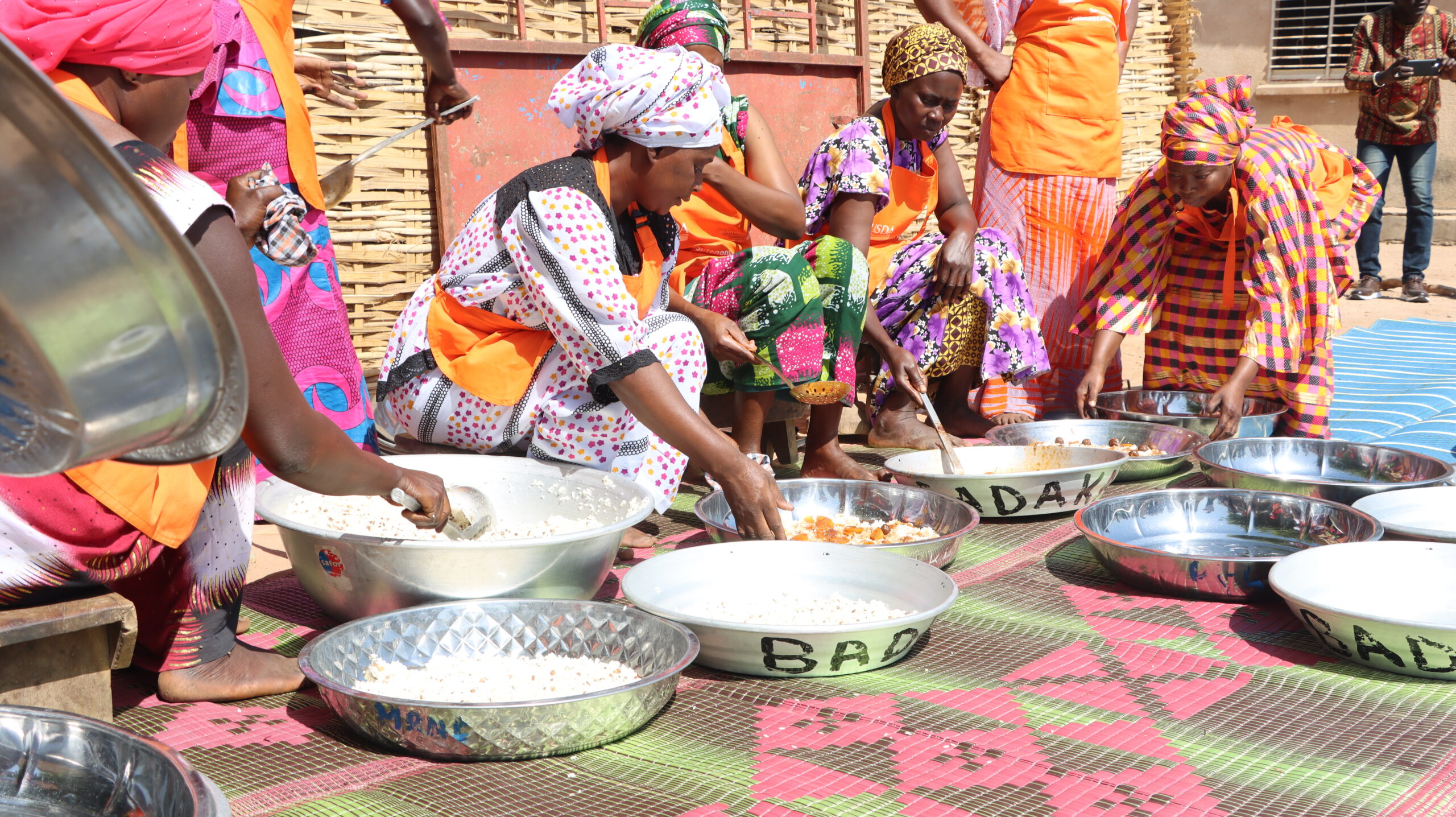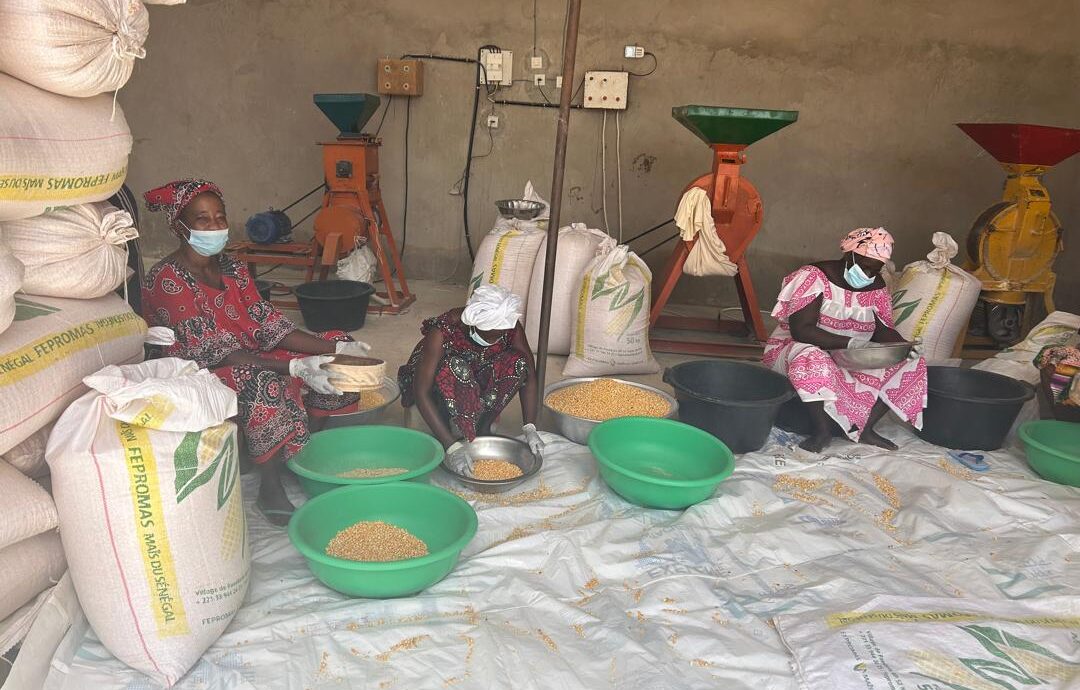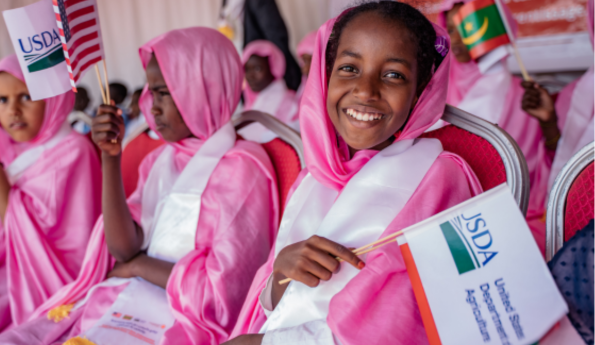
U.S. Ambassador to Senegal Michael Raynor visits El Hadji Alkaly Bacary Djité school in Sédhiou on March 10, 2023.
Counterpart welcomed the U.S. Ambassador to Senegal Michael Raynor on a visit to an elementary school in Sédhiou on March 10, 2023. Located in the Casamance region of southern Senegal in the Diendé commune, El Hadji Alkaly Bacary Djité is one of 285 new schools participating in the Sukaabe Janngo II (Children of Tomorrow) McGovern-Dole school meals program.
During his visit, Raynor emphasized the quality of the partnership between Senegal and the U.S. In addition to other areas of cooperation, school feeding directly serves children, on whom the future must be built. “Senegal is a strategic partner of the United States,” Raynor said. “We carry out many projects together to support posterity, security, health, democratic governance and resilience.”
Funded by USDA, the project recently introduced school canteens in two new regions, Kolda and Sédhiou, serving 80,000 students. For the next five years, the Sukaabe Janngo II project will also include educational activities and development initiatives to benefit the local communities around the schools.
Combined with our other McGovern-Dole project in the Saint-Louis region, which ended in June 2023, there are 555 participating schools in Senegal and more than 130,000 students enriched by the daily school meals. In the Diendé, five of the 16 schools in the commune are enrolled in the project.
Doura Cissé, the mayor of the Diendé commune, Marie Sané, director of the El Hadji Alkaly Bacary Djité elementary school, and Mamadou Mbengue, inspector of education and training, all remarked on the impact of Sukaabe Janngo. The school is already seeing improved academic performance from the students. “Thanks to the school canteen, latecomers, absences, and drop-outs have become old memories,” Sané said.
School enrollment increases when students are provided with daily nutritious meals, but Sukaabe Janngo is not just about feeding students. The project also supports the local school and communities through the agricultural production of foodstuffs that supply school canteens. This involvement of the community is an important lever that the project uses to reduce poverty, but above all to make the school canteen a community resource.
The start of the distribution of meals has also been made possible thanks to community efforts, such as the drilling of wells and the construction of food storage warehouses or parental contributions.
To learn more about our McGovern-Dole school feeding program in Senegal, read this story about our innovative mung bean project.





